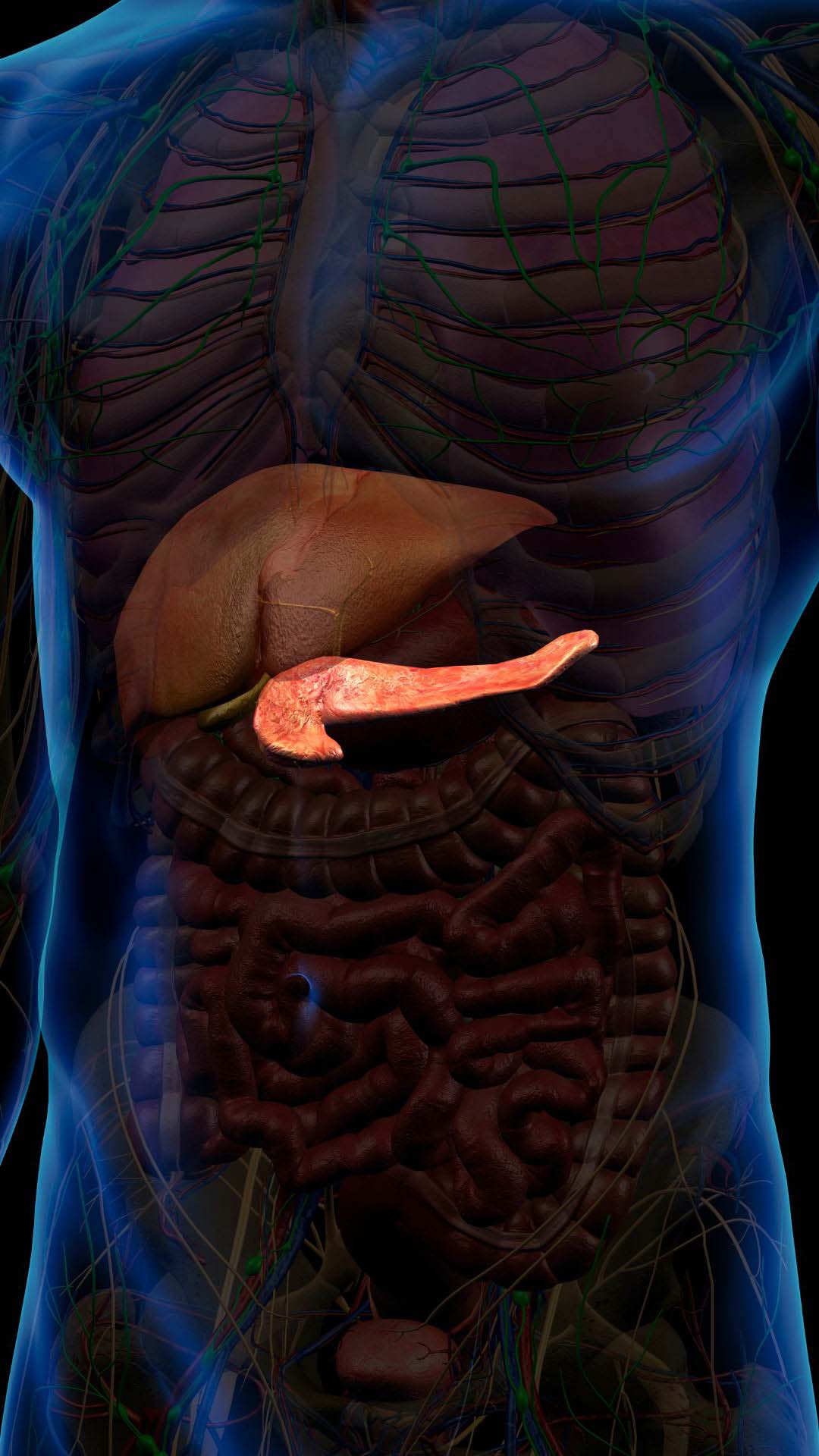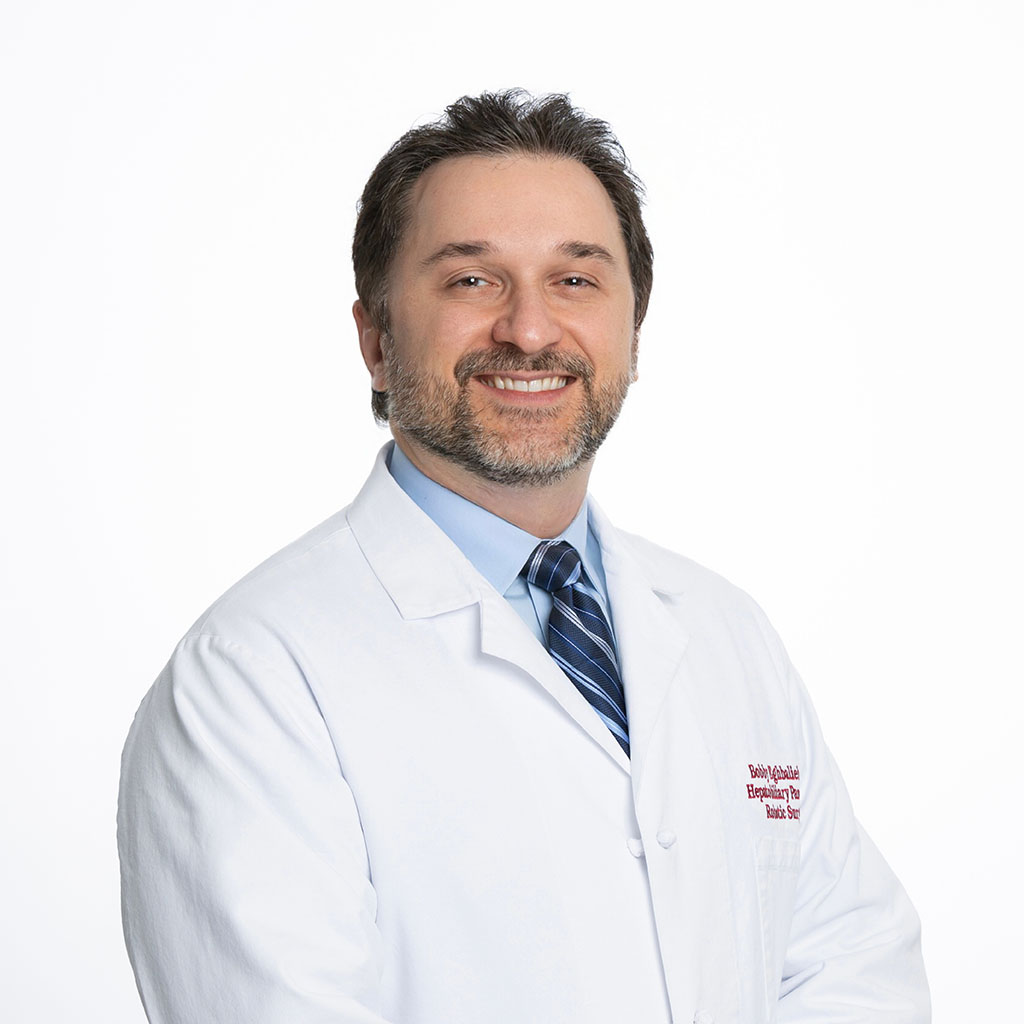What are pancreatic cystic lesions?
A pancreatic cystic lesion is a tumor in the pancreas that’s filled with fluid. There are several types of pancreatic cysts:
Mucinous cystadenoma: This type of pancreatic cystic tumor accounts for about half of all cases. They’re usually benign (not cancerous), but can progress to become malignant if they’re left untreated. They commonly occur in women with a median age of 54 years.
Serous cystadenoma: The second most common pancreatic cystic tumor, they’re almost always benign and seldom become cancerous.
Mucinous ductal ectasia: This pancreatic cyst becomes cancerous, then the cancer cells produce thick mucus that blocks the pancreatic duct and causes recurrent bouts of pancreatitis. It’s often found in older men around the age of 66 years.
Pancreatic Cystic Lesions Q & A
Your pancreas is located deep in your abdomen behind the stomach. A pancreatic cystic lesion is a tumor in the pancreas that’s filled with fluid.
What are the symptoms of pancreatic cystic lesions?
Many people don’t have symptoms from cysts, but if you do, you’re likely to experience:
- Nausea and vomiting
- Ongoing abdominal pain that sometimes radiates to your back
- A mass or lump you can feel in your upper abdomen, although rare
- IPMN (Intraductal Papillary Mucinous Neoplasm): A type of tumor that grows within the pancreatic ducts and is characterized by the production of thick fluid by the tumor cells. There are three types:
- Main pancreatic duct
- Side-branch duct
- Mixed types
What Causes Pancreatic Cysts?
The cause of pancreatic cysts is usually not determined. They may develop after an abdominal injury or following pancreatitis. Having gallstones and a history of alcohol abuse may also increase your risk of developing pancreatic cysts.
Who is Dr Babak Eghbalieh?
Dr. Babak Eghbalieh is the Director of the only Pancreatic Cancer Center of Excellence designation by the National Pancreas Foundation in all of Los Angeles, which is one of only three in California. Dr. Eghbalieh offers an array of service lines dedicated to evaluation and treatment of patients with the entire spectrum of pancreatic disease. His dedicated clinic for pancreatic cystic lesions offers a comprehensive evaluation of patients through a multidisciplinary approach ensuring the highest quality of care and outcomes. Patients are either offered to be a part of our active surveillance program or will proceed with definitive surgical intervention. Dr. Eghbalieh, a nationally renowned robotic surgeon, is an expert in using minimally-invasive surgery to remove pancreatic cysts. As the only clinic of its type, all of Dr. Eghbalieh’s patients have their cases reviewed at our Regional Pancreatic Cancer Tumor Board.
Treatment options for Pancreatic Cysts
Mucinous cystadenomas are always surgically removed before they spread and become invasive pancreatic cancer. Mucinous ductal ectasia is a slow-growing tumor, but since it can also become invasive pancreatic cancer, surgical removal is often recommended.
Dr. Eghbalieh may remove pancreatic cysts using laparoscopic surgery, but he has extensive experience using robotic surgery and knows it achieves better results. Both types of surgery are minimally invasive, so they only need a few small incisions, and recovery time is shortened. However, robotic surgery has distinct advantages over the laparoscopic technique.
Robot-assisted surgery allows Dr. Eghbalieh to operate in the abdomen and within small organs with greater precision and better visualization compared to standard laparoscopic surgery. The thin, yet highly mobile, robotic arms mimic Dr. Eghbalieh’s hands, so he can remove cysts and then repair delicate tissues with extreme precision.
If you’ve been diagnosed with pancreatic cystic lesions and would like to learn about the benefits of robot-assisted surgery, contact Dr. Eghbalieh at Southern California Multi-Specialty Center.
If you have been diagnosed pancreatic cystic lesions and would like to learn about the benefits of robot-assisted surgery, contact our office to schedule an appointment, call 818-900-6480.




